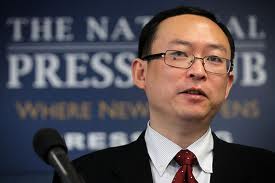Buried alive
来自China Digital Space
活埋 (huó mái): buried alive
When the Chinese government allowed dissident and author Yu Jie to leave the country they were hoping to silence his voice. Little did they know, just weeks after he entered the United States, one of Yu Jie’s statements would be dubbed the “first Internet catchphrase of 2012.”
Yu Jie wrote that the night before Liu Xiaobo was awarded the Nobel Peace Prize, he was wrestled into a car and taken to an unknown location where he was stripped naked and beaten. After that, the Domestic Security Department agent in charge made the following threat:
“If the order comes from above, within half an hour we can dig a pit and bury you alive. No one on earth would know... As far as we can tell, there are no more than 200 intellectuals in the country who oppose the Communist Party and are influential. If the central authorities think that their rule is facing a crisis, they can capture them all in one night and bury them alive.”
Other dissidents including Jiang Tianyong, Teng Biao, Liu Shihui, Zhang Lin and Liu Dejun have also reported being threatened by the Domestic Security Department that they could be buried alive.
The phrase “buried alive” quickly began to make the rounds on the Internet. One microblog user wrote, “They say in the event of a crisis they’ll bury 200 influential intellectuals. What a tragedy. Even when it comes to being buried alive, I don’t qualify.” A Ding, an online writer, included the phrase in his Chinese New Year Greeting: “Happy New Year--hope you make it onto the bury-alive list!”
Yu Jie is perhaps best well known for authoring the book, China’s Best Actor: Wen Jiabao.
<feed url="feed://chinadigitaltimes.net/china/yu-jie/feed/" entries="5">
[{PERMALINK} {TITLE}]
{DATE}, by {AUTHOR} </feed>





